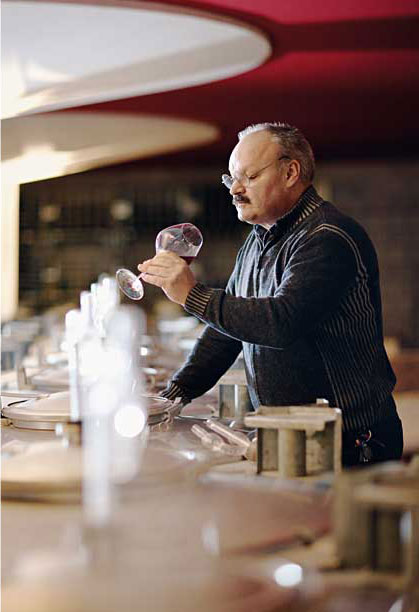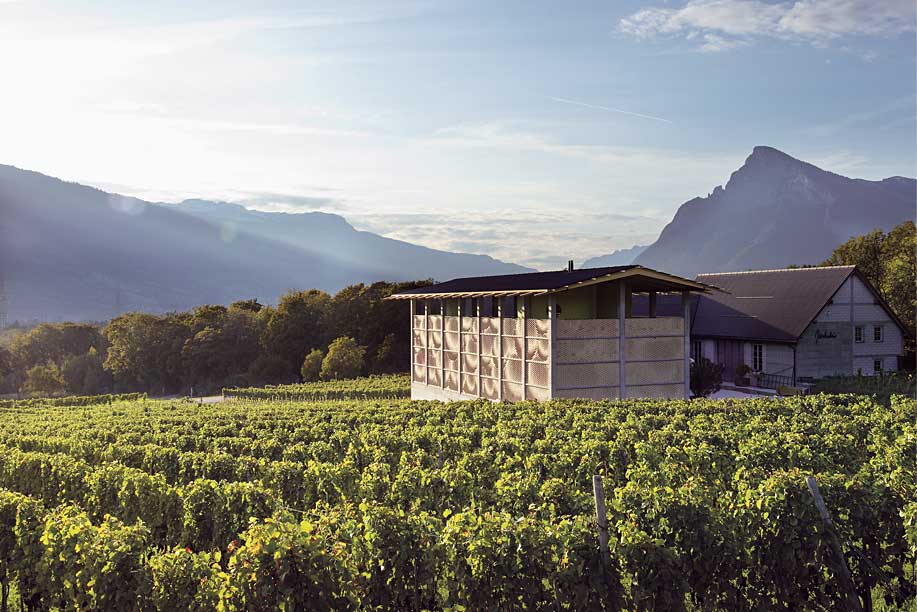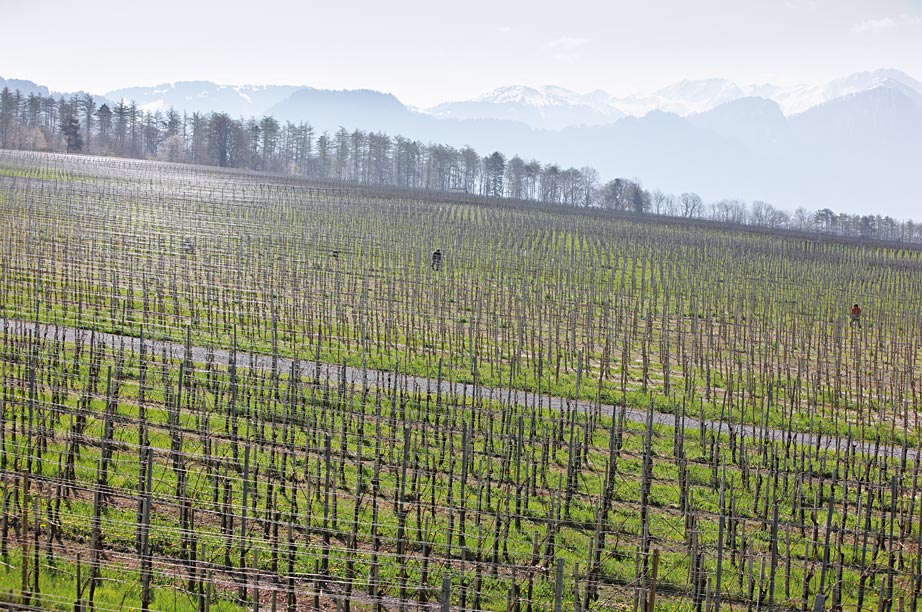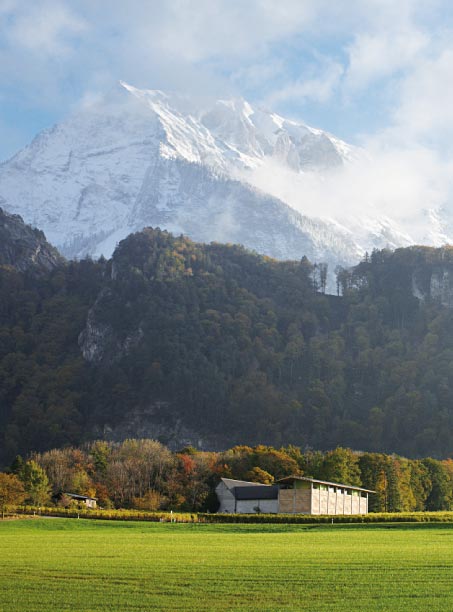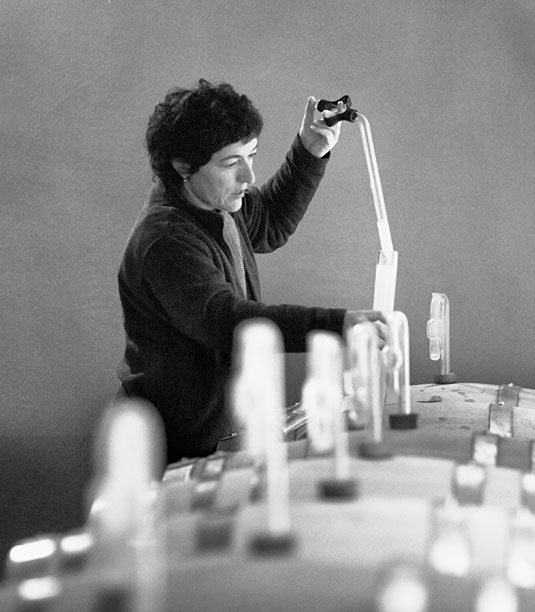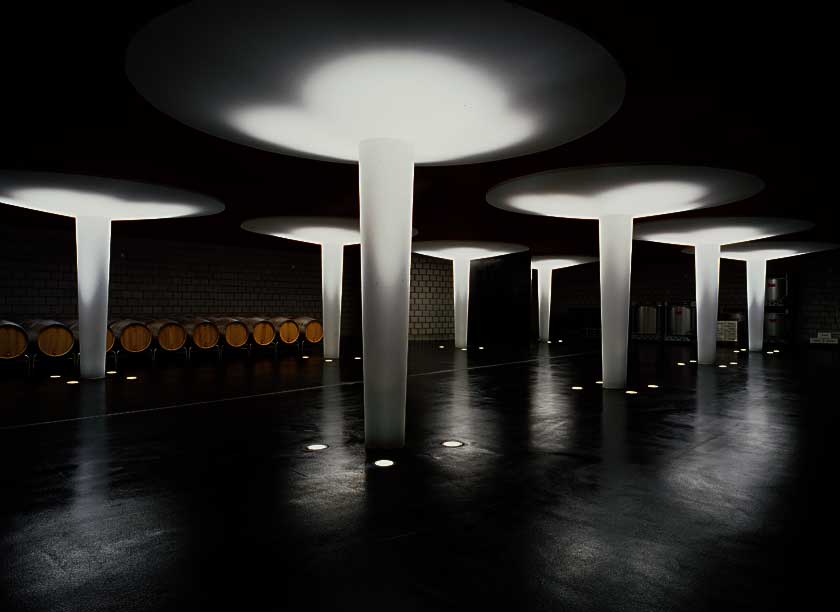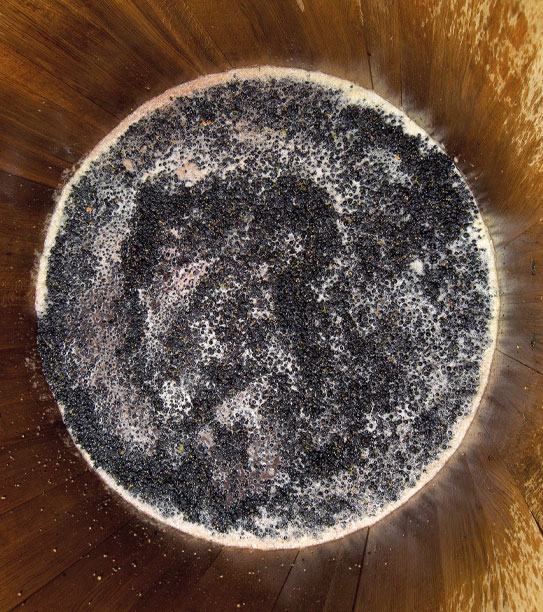Gantenbein is widely considered to be one of the best domains in Switzerland. Daniel and Marta Gantenbein do all of the vineyard and cellar work themselves, by hand. Together, they farm six hectares (15 acres) of vineyards, about 500 meters above sea level on the slopes at the base of the Alps.
To say that Weingut Gantenbein is lovely would be an understatement of the highest degree. The vineyards are located in the Graubünden district of the upper Rhine valley in eastern Switzerland, one of the most breathtakingly beautiful places on Earth. Not far from here, the Rhine begins its long journey high up in the Alps. Closer to the foothills is the winery; a marvel of design ingenuity and mechanical precision, its turned bricks catch the light just so to form gleaming grape-cluster mirages.
Most of the vineyards (about 12.5 acres) are planted densely with Pinot Noir clones from Burgundy. Daniel and Marta ferment their Pinot Noir in custom-built, open-top wood fermenters. Malolactic fermentation takes place in standard barriques. The wines are bottled after 12 to 14 months in barrique, without filtration or fining. In a good vintage, the yields are quite low — only about 1.5 tons per acre. That translates to an average production of about 1,000 cases, of which only 25 cases will come to the United States. One reviewer writes: “Gantenbein makes small batch handcrafted smoky Pinot Noir of incredible quality. Only around 180 bottles make it into the U.S. Consider yourself an insider to even hear about this wine and ‘lottery winning lucky’ to get your hands on a bottle.” Another writes: “hard to buy...but highly recommended if you want to taste Switzerland’s Romanée Conti.”
Gantenbein Pinot Noir is carefully harvested by hand and fermented in custom-built, open-top wood fermenters, typically with 20% whole clusters. Malolactic fermentation takes place in barriques. The wines are bottled after 12 to 14 months in barrique, without filtration or fining. Even in a good vintage, the yields are quite low — only about 1.5 tons per acre, for an average production of about 1,200 cases of Pinot Noir and about 200 cases of a fine, mineral-focused Chardonnay.



